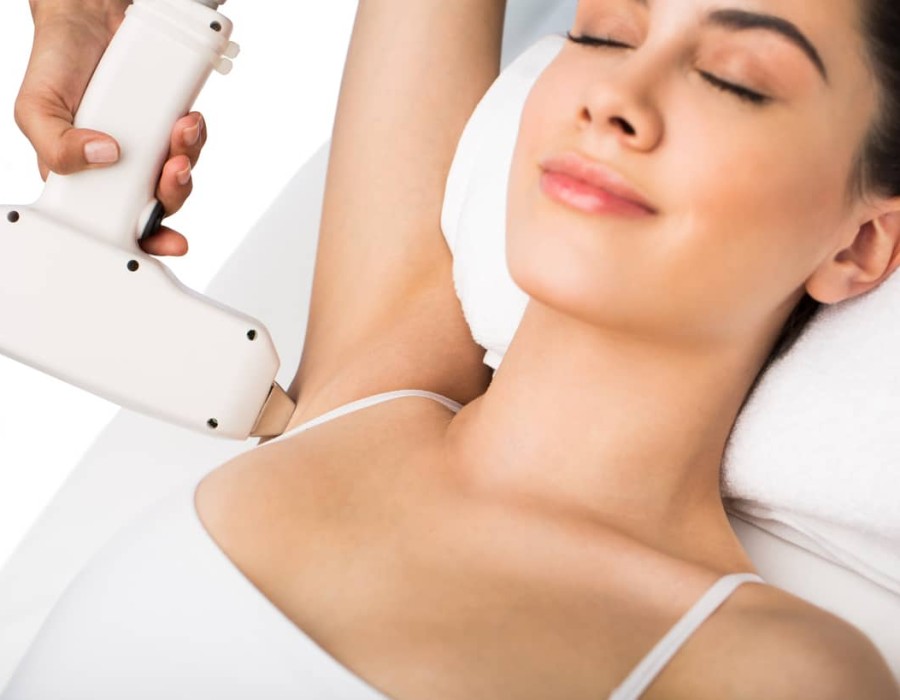Laser treatments have gained immense popularity in recent years, offering a non-invasive way to address various skin concerns. From acne scars to wrinkles and sun damage, laser technology promises to deliver smoother, clearer skin. However, many people wonder: is laser safe for the face? The answer depends on several factors, including the type of laser used, the treatment's purpose, and the expertise of the practitioner. In this article, we’ll explore the safety of Laser hair removal in Dubai for the face, , and precautions to take before undergoing a session.
Understanding Laser Treatments for the Face
Laser treatments use focused light energy to treat different skin conditions by targeting specific layers of skin or tissues. There are various types of lasers designed for specific skin concerns, including fractional lasers, CO2 lasers, and pulsed-dye lasers. Each type works differently, but the core principle remains the same: the laser generates heat that stimulates the skin to repair itself, thereby improving texture, tone, and overall appearance.
Laser procedures for the face are widely used for a variety of cosmetic reasons, including:
- Reducing fine lines and wrinkles
- Treating acne scars
- Removing sunspots and age spots
- Improving skin texture
- Tightening loose skin
While lasers are highly effective, the question of safety should be considered. Let’s dive deeper into the factors that influence whether laser treatments are safe for the face.
Is Laser Safe for the Face?
The short answer is yes, laser treatments for the face are generally safe, provided they are performed by a trained and experienced professional using the appropriate equipment. However, like any cosmetic procedure, there are some potential risks that must be considered.
The Importance of a Professional Practitioner
Safety is largely dependent on who performs the procedure. A qualified dermatologist, licensed laser technician, or medical professional should always administer laser treatments. These professionals are trained in the intricacies of laser technology and understand how to adjust the settings for different skin types and conditions. Choosing an unlicensed or inexperienced practitioner can increase the risk of complications, such as burns, scarring, or uneven results.
Skin Type Considerations
Not all skin types react the same way to laser treatments. People with darker skin tones may have a higher risk of hyperpigmentation or hypopigmentation, where the skin becomes either darker or lighter in areas treated by the laser. Additionally, certain lasers are not recommended for individuals with very dark or very light skin tones. It is essential for the practitioner to assess your skin type and choose the appropriate laser for your needs.
For individuals with sensitive or reactive skin, certain types of lasers may also pose a risk. Fractional and ablative lasers, for instance, work by creating tiny wounds in the skin to promote healing. While this can be beneficial for deeper skin concerns, it may not be suitable for those with extremely sensitive skin or underlying conditions like rosacea.
Laser Type Matters
The type of laser used will also impact how safe the procedure is for your face. Some lasers are more aggressive than others and require longer recovery times. Non-ablative lasers, such as fractional lasers, typically involve less downtime, while ablative lasers, such as CO2 lasers, are more invasive and can take longer to heal.
The treatment purpose is another factor in determining which laser is best suited for you. For instance, if you’re addressing pigmentation issues, a laser like the Q-Switched Nd:YAG might be the best choice, while a fractional CO2 laser could be better suited for resurfacing the skin and reducing wrinkles.
are.
Precautions Before and After Laser Treatment
To ensure the procedure is as safe as possible, there are several precautions you should take before and after the treatment.
Before Treatment
Consultation: Always schedule a consultation with a qualified practitioner. This consultation allows the professional to assess your skin, discuss your goals, and determine if laser treatment is right for you.
Avoid Sun Exposure: Exposing your skin to the sun before a laser treatment can increase the risk of pigmentation issues. Avoid tanning and wear sunscreen leading up to your procedure.
Disclose Your Medical History: Inform your practitioner of any underlying skin conditions, medications, or allergies that might affect the treatment.
Skin Sensitivity Testing: If you have sensitive skin, your practitioner may suggest a patch test to determine how your skin reacts to the laser.
After Treatment
Sun Protection: After the procedure, your skin will be more sensitive to the sun. It is crucial to apply sunscreen regularly and avoid direct sun exposure for a few weeks.
Avoid Picking at the Skin: While the skin heals, it may peel or flake. Avoid picking at the skin, as this can lead to scarring or infection.
Moisturization: Keeping the skin moisturized is essential for healing. Use gentle, hydrating products as recommended by your practitioner.
Follow Up Appointments: Depending on the type of laser treatment, multiple sessions may be needed. Follow up with your practitioner to ensure optimal results and address any concerns.
Conclusion
In conclusion, laser treatments are generally safe for the face when performed correctly by a qualified professional. However, understanding the risks, choosing the right laser type for your skin, and following the proper aftercare procedures are essential to ensuring a successful outcome. Laser treatments can help you achieve smoother, younger-looking skin, but always prioritize safety and choose a practitioner with the expertise to guide you through the process.
If you’re considering laser treatments, be sure to have an in-depth consultation to assess your skin’s suitability and discuss any potential concerns. When done right, laser therapy can be a highly effective and safe option for enhancing your facial skin.





Comments